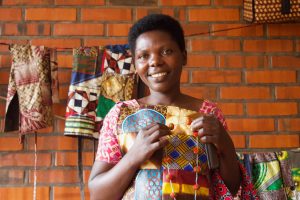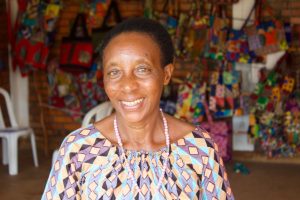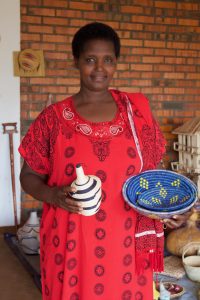At HOPE International, we operate in global settings where we’ve seen and experienced how election seasons can be filled with contention. And yet, we have also seen how our incredible global team has responded to these situations. This month, with elections in Moldova (where HOPE’s microfinance partner Invest Credit operates) and the U.S. (where we have our central office and many friends and supporters), we are eager to learn from our global brothers and sisters—how they have responded, especially in election seasons, and loved across dividing lines.
We especially look to the men and women we serve—like this Rwandan savings group comprised of both perpetrators and victims of the Rwandan genocide—to teach us how we can actively pursue mutual understanding and reconciliation.
1. Remember that we are brothers and sisters.
 The Rwandan savings group chose for themselves the name Abavandime (“siblings”), emphasizing their bond as brothers and sisters in Christ. Romans 12:10 says, “Love one another with brotherly affection. Outdo one another in showing honor,” and this group has taken that message to heart.
The Rwandan savings group chose for themselves the name Abavandime (“siblings”), emphasizing their bond as brothers and sisters in Christ. Romans 12:10 says, “Love one another with brotherly affection. Outdo one another in showing honor,” and this group has taken that message to heart.
One group member, Alphonsine, shares, “I always told myself that I would never succeed in living peacefully with those people harmed by my husband. … But it was just a question of time; the Lord had his ways. All those people we had conflicts with became my friends, and we forgave and loved each other. They ask us around for dinner or invite us to their children’s weddings. They even ask me to help them in preparing meals when they will be having guests at their homes. In reality, we are now brothers and sisters to one another.”
2. Don’t close the door to communication.

When we refuse to dialogue with those who don’t think like us, we create echo chambers that lead to misunderstanding and ungracious assumptions about our neighbors. Alphonsine says, “Now our neighbors come to borrow farming tools like a hoe, baths for washing their bodies, and they even visit us for discussions. Regular communication keeps misunderstandings to a minimum.”
Felicite shares the value of studying God’s word together, “Meeting others is very helpful to me, especially when we are studying the Bible together. … The shared Word of God emphasized unity and reconciliation, which opened our hearts and minds in many ways.”
3. Lose the labels.
 Pre-genocide, Rwandans carried identity cards that documented their ethnicity. The cards were abolished as the country worked to heal and reconcile. Frida, another group member, shares the change in her when she took on the identity of Christian: “The biggest change in belief that occurred is that I got to love people whom I would never love before. You see, these things surrounding Hutu and Tutsi were still in our minds, but after becoming a believer I got to see things in a different way and I learned to love everyone.”
Pre-genocide, Rwandans carried identity cards that documented their ethnicity. The cards were abolished as the country worked to heal and reconcile. Frida, another group member, shares the change in her when she took on the identity of Christian: “The biggest change in belief that occurred is that I got to love people whom I would never love before. You see, these things surrounding Hutu and Tutsi were still in our minds, but after becoming a believer I got to see things in a different way and I learned to love everyone.”
What if we saw ourselves primarily as Christians, whose highest allegiance is to our Risen Savior? Wherever we live, we vote not primarily as party members but as Kingdom people, striving to be faithful to the values shared in Scripture and impressed upon our hearts. Even when we disagree on how to achieve it, we all want justice, the ability to provide for our families, and—ultimately—the abundant life Jesus promises in John 10:10. As we work toward it on Earth, let’s keep eternity in mind. In God’s Kingdom, there aren’t any political parties—just one great and gracious King.
















